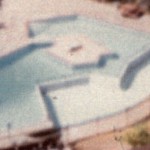

Our firm has handled multiple drowning, near drowning and diving cases. These have resulted in multiple claims in excess of a million dollars. We are very experienced in swimming pool claims, and we will perform an initial investigate of your swimming pool case for free. If we find that there is not a valid claim, you will owe us nothing, even for the funds we expend in our investigation.
Just because someone is injured or dies at a swimming pool does not mean that there is a claim against the pool owner or operator. A detailed and extensive investigation must be made in order to determine whether the injury or death was the direct result of a problem in the pool or its operation. Public, commercial, apartment complex, hotel and private pools all must be operated in a reasonable safe fashion and in compliance with national standards, local ordinances, municipal and county regulations and any state laws that may be applicable to the particular pool.
Recently we were retained to investigate a near drowning anoxic brain injury claim that occurred 17 years ago at an apartment complex that went bankrupt shortly after the incident. The insurer at the time of the incident could not be located and remaining business records were devoid of much help. The pool was removed and the old owners had no records or photographs of the pool. After an investigation that went on for over a year we have established all of the information necessary to make a submissible case. The victim is now in his mid-twenties and has had symptoms of a subtle brain injury that has had a significant impact on his life. A neuropsychologist has detected a significant objective brain injury that will permanently impact the victim.
Through subpoenas and thorough investigation techniques we located the insurer and an aerial photograph from the files of the police. This photograph was enhanced and allowed up to demonstrate the critical design defect in the pool that caused the near drowning and significant anoxic brain injury to the child who is not 30 years old. The case is in litigation now and two swimming pool design experts have been retained based upon the solid evidence we have located.

POOL OPERATION
Rules, custom and regulations control the operation of the pool, including: the clarity of the water, sanitation and proper water maintenance; safe and secure surroundings; safety, rescue, first aid and other equipment required to be on location; signage on location; and supervision (properly trained lifeguards) under certain circumstances of operation.
POOL DESIGN AND CONDITION
There are design codes, rules, regulations, building codes and ordinances that control the design of pools. Although there are many, the main design rules that can cause injury or death relate to: designs that prevent observation of areas of the pool; absence of ropes and lines where required near drop off and between children’s wading area and the rest of the pool, improper or inadequate depth markers; improper coping that does not provide for a hand grip; severe drop offs; diving areas with inadequate depth; and pool security, fencing and locking gates.

Drowning Statistics
Every day, about ten people die from unintentional drowning. Of these, two are children aged 14 or younger. Drowning ranks fifth among the leading causes of unintentional injury death in the United States. More than 50% of drowning victims treated in emergency departments require hospitalization or transfer for further care (compared with a hospitalization rate of about 6% for all unintentional injuries). These nonfatal drowning injuries can cause severe brain damage that may result in long-term disabilities such as memory problems, learning disabilities, and permanent loss of basic functioning (e.g., permanent vegetative state)
Waterborne Illnesses.
Swallowing just a little water that contains germs can make you sick. Keeping chlorine at recommended levels is essential to maintain a healthy pool. However, a 2010 study found that 1 in 8 public pool inspections resulted in pools being closed immediately due to serious code violations such as improper chlorine levels according to the CDC.
Diving Accidents
Swimming pool operators must ensure that their pool is designed in accordance with code for the diving board in place. Spinal cord injuries are possible if the dimensions are not appropriate. Diving boards must be replaced within appropriate times or the board could break causing severe injuries. Above ground pools are not safe for diving and proper warnings are required by the manufacturer. We have handled diving claims and lawsuits and obtained lifetime benefits.


Leave a Reply